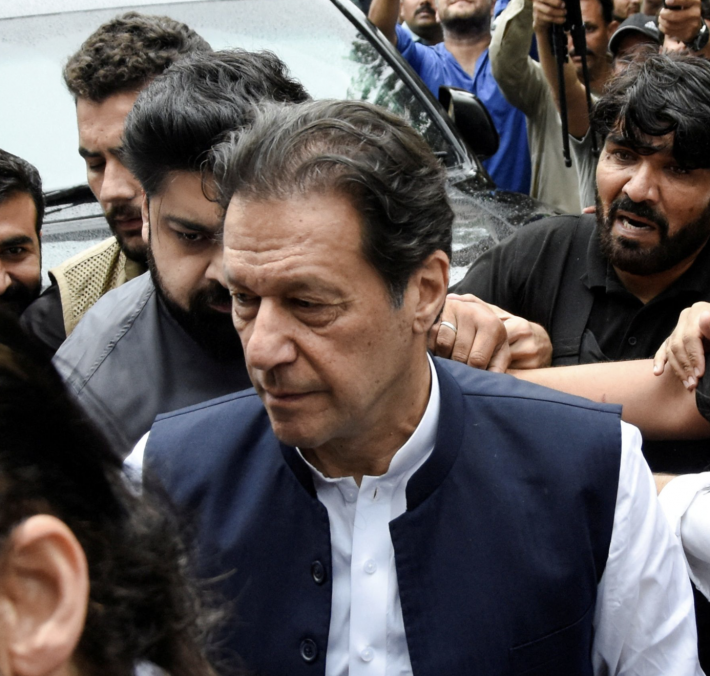Pakistan’s former Prime Minister, Imran Khan, a former cricketer-turned-politician,
was recently arrested in questionable and unclear circumstances, prompting intense,
widespread debate and criticism. This blog aims to shed light on the reasons behind
his arrest and why it was fundamentally wrong.
The Arrest
On a pivotal day, while participating in a nonviolent demonstration against purported
electoral rigging, Imran Khan was taken into custody by the police on accusations of
sedition and inciting violence. Khan has always emphasised the significance of
democracy in Pakistan and has been a vocal advocate for fair and transparent
elections. His arrest caused shockwaves across the country, causing many to
question the motives and ethics behind such drastic action.
Political Motivations
It is widely believed that Khan’s detention was politically motivated to curtail his
rising influence as a prominent opposition leader. As the leader of Pakistan
Tehreek-e-Insaf (PTI) party, Khan, had gathered significant support and posed a
formidable challenge to the ruling party. His relentless pursuit of accountability and
justice connected with the populace, threatening the stability of the government.
Therefore, the arrest appears to be a deliberate attempt to stifle dissent and curtail
the democratic process.
Violation of Freedom of Expression
The arrest of Imran Khan represents a flagrant infringement of the fundamental right
to freedom of expression. Every functional democracy needs peaceful protests
because they allow people to express their concerns and hold the
government accountable. Khan’s detention sends a chilling message to the public,
creating fear and discouraging peaceful dissent. The authorities used an
authoritarian approach, silencing a prominent voice of dissent rather than
addressing and resolving the grievances raised by the opposition.
Lack of Evidence
One of the most troubling aspects of Imran Khan’s arrest is the lack of substantial
evidence supporting the charges brought against him. Before an arrest is justified,
strong evidence must support the serious accusations of sedition and
incitement to violence. However, in Khan’s case, the prosecution’s case was, at best
, tenuous. This raises serious concerns about the fairness and impartiality of the legal
, system and suggests that the arrest was an arbitrary act driven by ulterior motives.
Selective Justice
The selective application of justice is a recurrent issue in many nations, and Khan’s
arrest further exemplifies this problem. While those connected to the ruling party
frequently enjoy impunity and avoid accountability for comparable or even more
severe offences, opposition leaders frequently face immediate action and punitive
penalties. This glaring double standard erodes public trust in the justice system and
undermines the rule of law. The arrest of Imran Khan only reinforces the perception
that the scales of justice are tipped in favour of the powerful and politically
connected.
The arrest of Imran Khan was an unjustifiable act that not only violated his
fundamental rights but also Pakistan’s democracy and freedom of expression. It is
clear that this arrest was a deliberate action to silence criticism and preserve the
status quo given the lack of evidence, the political motives, and the selective
application of law. As citizens, it is essential to question such actions and demand
transparency, fairness, and accountability from those in power. Only by safeguarding
democratic principles and upholding the rule of law can a nation truly progress and
thrive.
Saba Malik, University of Westminster
